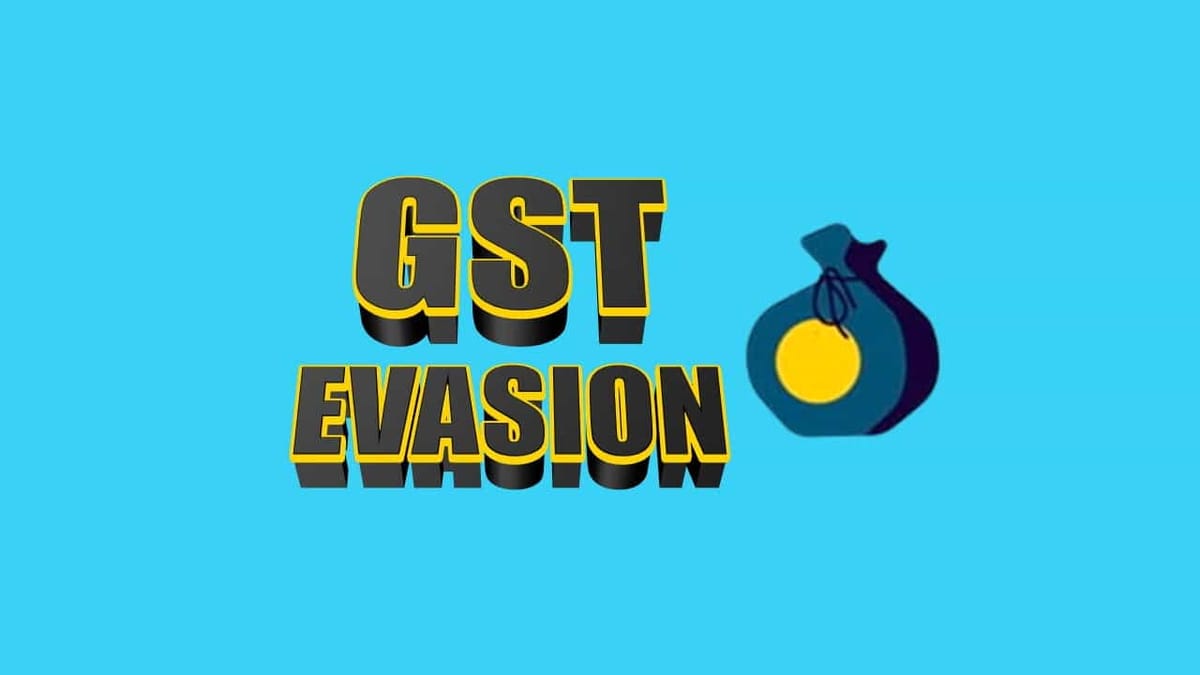Reetu | Dec 26, 2022 |

CBIC detects GST Evasion of Rs.62000 Crore via Fake Invoices during Past 3 years
Tax authorities have discovered GST evasion totaling Rs.62000 crore carried out using fictitious invoices, according to a senior official of the Central Board of Indirect Taxes and Customs.
This is the primary reason the government excluded such offences from the increased monetary threshold of Rs.2 crore in the recently concluded GST Council meeting.
Since 2020, central GST authorities have arrested over 1,030 people who used forged invoices to illegally obtain or pass on input tax credits.
Given that state-level issues are distinct, the number of cases and the amount involved would be significantly higher.
“There are dishonest traders who fabricate invoices by displaying phoney e-way bills and goods movement. It was challenging to trace the entities because they were registered in various states and kept changing their identification numbers ” Official Stated.
As part of its decriminalisation initiative, the GST Council approved raising the threshold for filing criminal charges from Rs.1 crore to Rs.2 crore for a variety of GST offences, excluding those involving fake invoices.
At the moment, if the amount evaded exceeds Rs 2 crore (but not more than Rs 5 crore/Rs 50 million), the jail term could be three years. If the amount of tax evaded exceeds Rs 1 crore (but less than Rs 2 crore), the incarceration period is one year.
Changes are expected to take effect during the Budget session.
The law committee under the Council, while suggesting hiking the threshold, noted “to curb the menace of fake invoice and to control passing of input tax credit by such fake/ non-existent units, it is imperative that the mastermind of such a crime is not afforded any opportunity to compound their offence. This is accomplished by utilising the provisions of Section 138 (which deals with monetary thresholds) of the CGST Act.
It stated that the compounding provisions are intended to reduce legal proceedings with genuine and existing traders who have committed the offence but are willing to clean up their acts and continue doing business legally.
It went on to say that compounding provisions can give masterminds an opportunity to avoid prosecution by creating bogus entities and committing economic fraud on purpose.
As a result, such individuals (those who generate or engage in fake invoicing) should be excluded from the decriminalisation of offences.
To combat fake invoices, GST authorities introduced sequential filing of GSTR-1 (monthly/quarterly return) and GSTR-3B (supplies during the month along with GST paid) earlier this year. In response to the threat, the Council formed a group of ministers (GoM) to submit a report on overall GST system strengthening.
The ministerial panel, led by Maharashtra’s Deputy Chief Minister and Finance Minister Ajit Pawar, presented its observations at the June Council meeting. The report highlighted the specific issue, stating that the first issue on the subject was about new registration and biometric authentication.
The second issue was to investigate the profile of new system registrants and to require physical verification of these registrations. The third step was to investigate existing taxpayers to see if they were engaging in fraudulent invoicing. These were to be physically verified.
They also suggested geo-coding addresses. It was discovered that many taxpayers provided non-existent/false addresses when applying for new registrations.
The GST network is currently developing the system based on the suggestion.
In case of any Doubt regarding Membership you can mail us at contact@studycafe.in
Join Studycafe's WhatsApp Group or Telegram Channel for Latest Updates on Government Job, Sarkari Naukri, Private Jobs, Income Tax, GST, Companies Act, Judgements and CA, CS, ICWA, and MUCH MORE!"